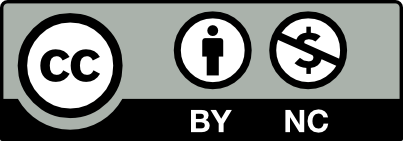Por favor, use este identificador para citar o enlazar este ítem:
http://hdl.handle.net/10609/147592
| Título : | What does comanagement offer? Exploring users’ knowledge through mental models in the fishery of La Encrucijada Biosphere Reserve, Mexico |
| Autoría: | d'Armengol, Laia Ruiz-Mallén, Isabel Barnaud, Cecile Corbera, Esteve |
| Otros: | Universitat Autònoma de Barcelona (UAB) Universitat Oberta de Catalunya. Internet Interdisciplinary Institute (IN3) Université de Toulouse Institució Catalana de Recerca i Estudis Avançats (ICREA) |
| Citación : | D'Armengol, L., Ruiz-Mallen, I., Barnaud, C. & Corbera, E. (2021). What does comanagement offer? Exploring users' knowledge through mental models in the fishery of La Encrucijada Biosphere Reserve, Mexico. Ecology and Society, 26(1). doi: 10.5751/ES-12177-260125 |
| Resumen : | In the context of collaborative resource management, mental models can provide insights on participants’ understanding of the resource management system and in so doing allow researchers and practitioners to derive lessons about the success or failure of comanagement approaches. We analyzed individual and group mental models in the comanaged small-scale fishery of La Encrucijada, Mexico, active since 2009. Mental models reveal a strong consensus around the idea that the comanagement initiative is a government-led partnership to subsidize fishers. This belief reflects a history of state paternalism and coexists with a diversity of views about who are the actors involved in comanagement, their role in the fishery, and the resources mobilized through comanagement. We argue that local participants’ limited understanding of the collaborative mechanisms established by the comanagement initiative suggests a failure of the promoting actors to communicate the initiative’s environmental and social goals and to exploit its transformative potential in terms of actors’ empowerment and participation in the long term. This research contributes to the burgeoning literature on the use of mental models as a means to unravel the cognitive aspects that may lie underneath the success or failure of natural resource governance. |
| Palabras clave : | gestión colaborativa área protegida toma de decisiones compartida pesca artesanal |
| DOI: | https://doi.org/10.5751/es-12177-260125 |
| Tipo de documento: | info:eu-repo/semantics/article |
| Versión del documento: | info:eu-repo/semantics/publishedVersion |
| Fecha de publicación : | 1-ene-2021 |
| Licencia de publicación: | https://creativecommons.org/licenses/by-nc/4.0/  |
| Aparece en las colecciones: | Articles cientÍfics Articles |
Ficheros en este ítem:
| Fichero | Descripción | Tamaño | Formato | |
|---|---|---|---|---|
| What_does_comanagement_offer_Exploring_users_knowledge_through_mental_models_in_the_fishery_of_La_Encrucijada_Biosphere_Reserve_Mexico.pdf | 12,61 MB | Adobe PDF |  Visualizar/Abrir |
Comparte:
 Google Scholar
Google Scholar
 Microsoft Academic
Microsoft Academic
Los ítems del Repositorio están protegidos por copyright, con todos los derechos reservados, a menos que se indique lo contrario.

